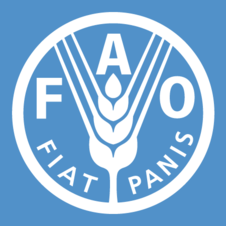ESTREÑIMIENTO Y SÍNDROME DE INTESTINO IRRITABLE EN MUJERES EN EL TERCER TRIMESTRE DE GESTACIÓN: LA RELACIÓN CON LA INGESTA DIETÉTICA
Resumen
Introducción: El embarazo se relaciona con el estreñimiento y el síndrome de intestino irritable. No existe publicación en el área de una población Mexicana. Objetivos: Estimar la presencia de estreñimiento y síndrome de intestino irritable en relación a la ingesta dietética materna. Métodos: El estudio se realizó en el Hospital Regional Materno Infantil de Nuevo León. El estreñimiento y síndrome de intestino irritable se determinaron según los Criterios Roma III en 336 mujeres en tercer trimestre de gestación. Información demográfica e ingesta dietética fueron registrados para una sub-muestra de 125 participantes: sin estreñimiento, con estreñimiento, y con síndrome de intestino irritable, según su condición gastrointestinal, para determinar diferencias entre grupos y la relación con ingesta dietética. Resultados: El estreñimiento fue auto-reportado por 25% (95% CI 21.0–30.6%) de las participantes. Según los Criterios Roma III, la presencia de estreñimiento y de síndrome de intestino irritable fueron del 5% (IC 95% 2.9–7.9%) y 13.6% (IC 95% 10.2–17.8%), respectivamente (n = 336). La ingesta dietética de kilocalorías, fibra, agua, y cafeína no fueron diferentes estadísticamente entre mujeres sin estreñimiento, con estreñimiento y con síndrome de intestino irritable (n=125). Ingesta de fibra y agua fueron menores a las recomendaciones para el embarazo en 85% y 60% de las participantes, respectivamente. Conclusiones: La ingesta dietética no estuvo relacionada con ambas condiciones gastrointestinales, sugiriendo el efecto de factores hormonales y mecánicos. El consumo de fibra y agua por debajo de su recomendación refleja la necesidad de consejo nutricional prenatal.
ABSTRACT
Introduction: Pregnancy is related to constipation and irritable bowel syndrome. There is no published work in this field studying a Mexican population. Objectives: To estimate the presence of constipation and irritable bowel syndrome in relation to maternal dietary intakes. Methods: The study was conducted at Hospital Regional Materno Infantil of Nuevo Leon. Rome III Criteria determined constipation and irritable bowel syndrome in 336 women in the third trimester of pregnancy. Demographic information and dietary intakes were recorded from a sub-sample of 125 participants: non-constipated, constipated, and with irritable bowel syndrome according to their gastrointestinal condition, to determine differences among groups and the relationship with dietary intakes. Results: Constipation was self-reported by 25% (95% CI 21.0–30.6%) of participants. According to Rome III Criteria, prevalence of constipation and irritable bowel syndrome was 5% (95% CI 2.9–7.9%) and 13.6% (95% CI 10.2–17.8%), respectively (n = 336). Dietary intakes of kilocalories, fiber, water, and caffeine were not statistically different among non-constipated, constipated and women with irritable bowel syndrome (n = 125). Intakes of fiber and water were lower than recommendation for pregnancy in 85% and 60% of participants, respectively. Conclusions: Dietary intakes were not related to both gastrointestinal conditions, suggesting the effect of hormonal and mechanical factors. Fiber and water consumption below the recommendation reflects the need of prenatal nutritional advice.
Palabras Clave: Embarazo, Estreñimiento, Ingesta Dietética, Pregnancy, Constipation, Dietary Intakes
Descargas
Citas
Anderson, A.S., Campbell, D., & Shepherd, R. (1993) Nutrition knowledge, attitude to healthier eating and dietary intake in pregnant compared to non-pregnant women. Journal of Human Nutrition and Dietetics 6, 335–353.
Anderson, A.S. (2001) Symposium on nutritional adaptation to pregnancy and lactation. Pregnancy as a time for dietary change? Proceedings of the Nutrition Society 60, 497–504.
Arnaud, M.J. (2003) Mild dehydration: a risk factor of constipation? European Journal of Clinical Nutrition 57, S88–S95.
Bradley, C.S., Kennedy, C.M., Turcea, A.M., Rao, S.S.C., & Nygaard, I.E. (2007) Constipation in pregnancy: prevalence, symptoms, and risk factors. Obstetrics & Gynecology 110, 1351–1357.
Broussard, B.S. (1998) The constipation assessment scale for pregnancy. Journal of Obstetric, Gynecologic & Neonatal Nursing 27, 297–301.
Buss, C., Nunes, M.A., Camey, S., Manzolli, P., Marques-Soares, R., Drehmer, M., et al. (2008) Dietary fibre intake of pregnant women attending general practices in southern Brazil–The ECCAGE Study. Public Health Nutrition 12, 1392–1398.
Cullen, G. & O’Donoghue, D. (2007) Constipation and pregnancy. Best Practice & Research Clinical Gastroenterology 21, 807–818.
Derbyshire, E., Davies, D., Costarelli, V., & Dettmar, P. (2006) Diet, physical inactivity and the prevalence of constipation throughout and after pregnancy. Maternal and Child Nutrition 2, 127–134.
Derbyshire, E. (2007) The importance of adequate fluid and fibre intake during pregnancy. Nursing Standard 21, 40–43.
Food and Nutrition Board. (2005) Dietary Reference Intakes for Water, Potassium, Sodium, Chloride, and Sulfate. USA: National Academies Press.
Food and Nutrition Board. (2005b) Dietary Reference Intakes for Energy, Carbohydrate, Fiber, Fat, Fatty Acids, Cholesterol, Protein and Amino Acids (macronutrients). USA: National Academies Press.
Ponce, J., Martínez, B., Fernández, A., Ponce, M., Bastida, G. Plá, E. et al. (2008) Constipation during pregnancy: a longitudinal survey based on self-reported symptoms and the Rome II criteria. European Journal of Gastroenterology and Hepatology 20, 56–61.
Ramos-Hernández RI, Romero-Quechol G, Reyes-Morales H, Pérez-Cuevas R. (2005) Alimentación y estado nutricio de mujeres embarazadas derechohabientes del Instituto Mexicano del Seguro Social en un área suburbana de la Ciudad de México. Ginecología y Obstetricia de México 73, 3–10.
Rosado, J.L. (2008) Fibra dietética. In: Recomendaciones de ingestión de nutrimentos para la población mexicana. Bases fisiológicas. Energía, proteínas, lípidos, hidratos de carbono y fibra. Tomo 2. Eds. H. Bourges, E. Casanueva, & J Rosado, pp. 161–169. México: Panamericana.
Shi, W., Xu, X., Zhang, Y., Guo, S., Wang, J., Wang, J. (2015) Epidemiology and Risk Factors of Functional Constipation in Pregnant Women. PLoS One 10(7): e0133521.
Smith, K. (2000) Fruit and vegetable consumption of women in low-income groups: barriers and incentives for increasing intake. Journal of Human Nutrition and Dietetics 13, 363–371.
Tijerina Sáenz, A., Ramírez López, E., Meneses Valderrama, V.M., Martínez Garza, N.E. (2014) Ingesta energética y de macronutrientes en mujeres embarazadas en el noreste de México. Archivos Latinoamericanos de Nutrición 64 (3), 174–181.
van Brummen, H.J., Bruinse, H.W., van de Pol, G., Heintz, A.P.M., & van der Vaart, C.H. (2006) Defecatory symptoms during and after the first pregnancy: prevalences and associated factors. International Urogynecology Journal 17, 224–230.
Wald, A. (2003) Constipation, diarrhoea and symptomatic hemorrhoids during pregnancy. Gastroenterology Clinics of North America 32, 309–322
Descargas
Publicado
Cómo citar
Número
Sección
Licencia
Los derechos del trabajo pertenecen al autor o autores, sin embargo, al enviarlo a publicación en la Revista Salud Pública y Nutrición de la Facultad de Salud Pública y Nutrición de la Universidad Autónoma de Nuevo León, le otorgan el derecho para su primera publicación en medio electrónico, y posiblemente, en medio impreso a la Revista Salud Pública y Nutrición. La licencia que se utiliza es la de atribución de Creative Commons , que permite a terceros utilizar lo publicado siempre que se mencione la autoría del trabajo y a la primera publicación que es en la Revista Salud Pública y Nutrición. Asimismo, el o los autores tendrán en cuenta que no estará permitido enviar la publicación a ninguna otra revista, sin importar el formato. Los autores estarán en posibilidad de realizar otros acuerdos contractuales independientes y adicionales para la distribución no exclusiva de la versión del artículo publicado en la Revista Salud Pública y Nutrición (p. ej., repositorio institucional o publicación en un libro) siempre que indiquen claramente que el trabajo se publicó por primera vez en la Revista Salud Pública, Revista de la Facultad de Salud Pública y Nutrición de la Universidad Autónoma de Nuevo León.










